This post may contain affiliate links. Please read our disclosure policy.
This creamy mushroom coffee combines your favorite brew with healing mushroom powder (adaptogenic mushrooms or other nutritious options) for a healthy, wholesome drink to alleviate stress (without the mushroom taste)!

I’m not going to lie – when I first heard about mushroom coffee, I wasn’t impressed. I never looked into it, and the idea sounded odd (at best). Then recently, I enjoyed date seed coffee (a delicious caffeine-free coffee alternative), and mushroom lattes (and adaptogen coffee) came back onto my radar. I finally took the time to learn more about this healing drink, aka adaptogen coffee, and now I’m hooked!
Rather than drinking what I imagined would taste like the water leftover from soaking dried mushrooms, this coffee is actually just … coffee – but with an extra dimension of flavor through powdered mushrooms that take your coffee/latte to a whole new level!
I suppose I shouldn’t be surprised, considering we know that mushrooms are packed with umami-flavor and the ties between mushrooms and MSG. In fact, I’ve really taken the time to appreciate mushrooms so far this year. With recipes including mushroom dumplings, mushroom ragu, ‘shroom tacos, creamy mushroom soup, mushroom toast, and even perfectly sauteed mushrooms – why not add them to drinks too?!
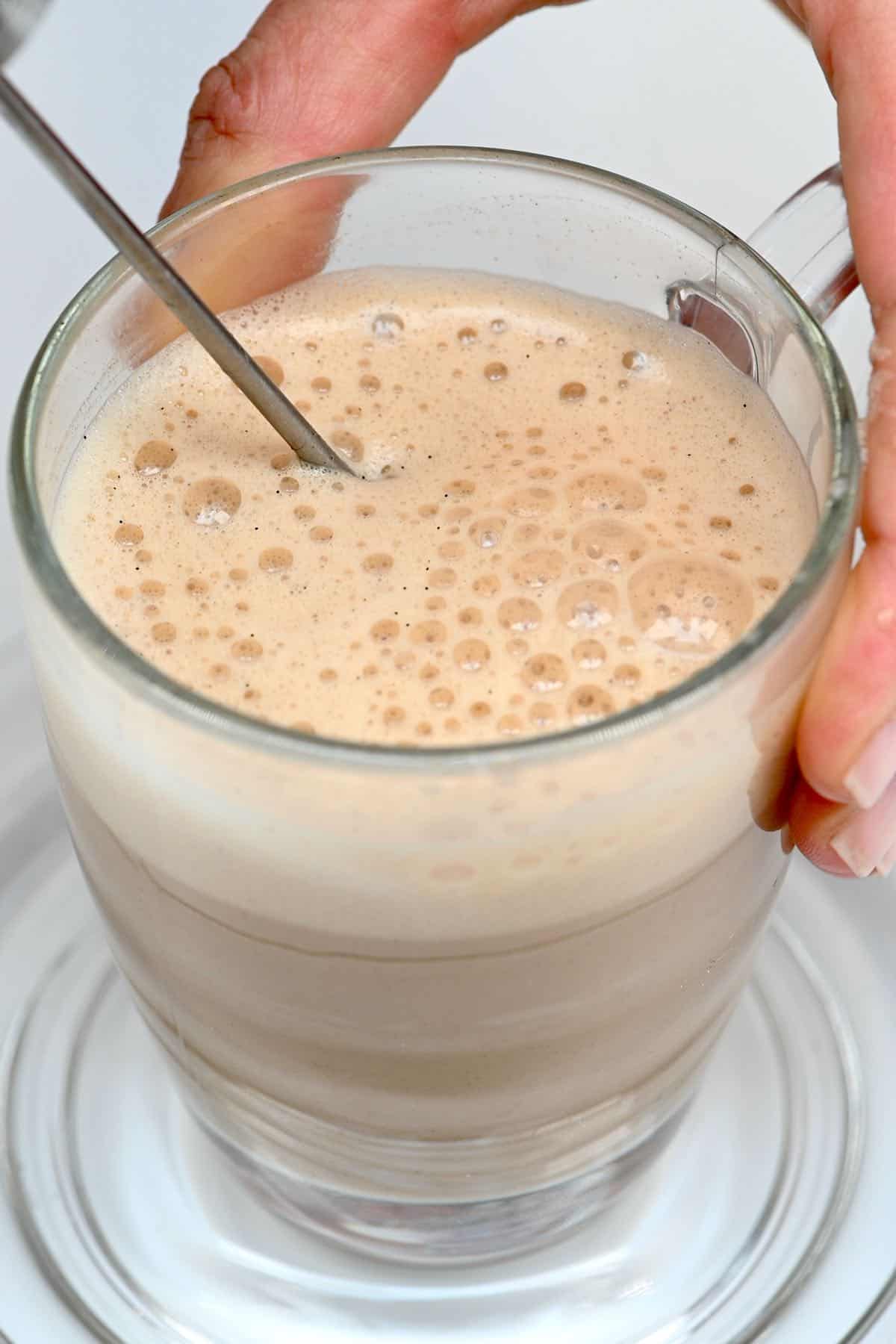
In fact, in February I shared my favorite method for drying mushrooms at home, and that’s what initially set me on my journey to discovering the delicious, nutritious, and ‘healing’ mushroom coffee.
Best of all, this process will work whether you want to enjoy a stress-healing adaptogen coffee or other mushroom varieties.
Want to save this recipe?
What Are Adaptogenic Mushrooms?
Adaptogenic mushrooms are simply varieties of mushrooms used as herbal health products to reduce the negative effects of stress on our bodies. They do this by increasing our body’s resistance to the signs of stress – including physical, biological, and chemical stress – and promoting recovery.
Reishi
Reishi mushrooms honestly look a little like something that wouldn’t look amiss in the ocean as part of a coral reef (and inedible) – but they sure make for a delicious reishi mushroom coffee!
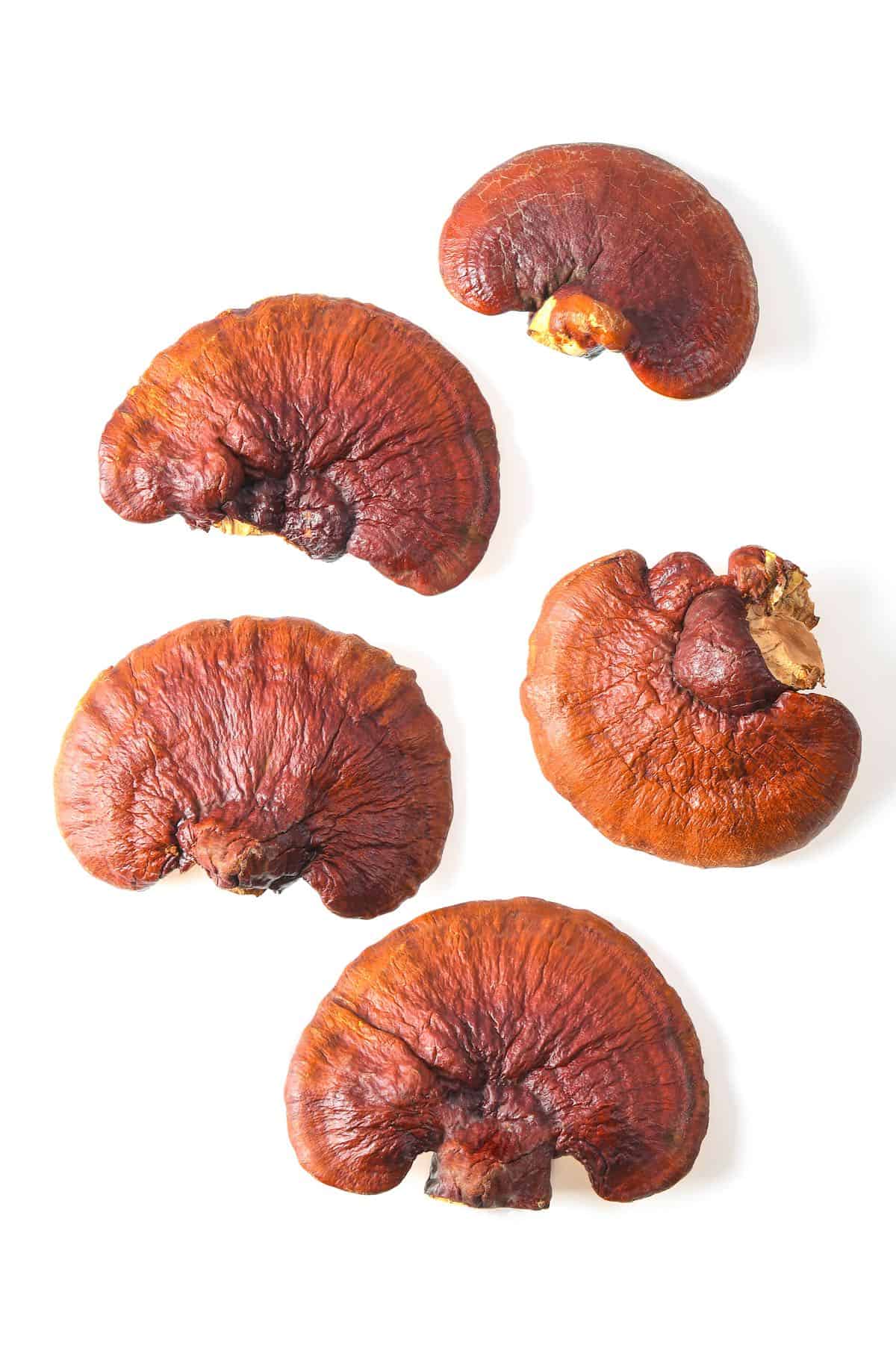
In fact, these help to support the function of the adrenal glands, which secrete the hormone cortisol. Cortisol is necessary to respond to bodily stress. Several studies have investigated the link between reishi mushrooms and protection against stress-induced anxiety and exercise-induced bodily damage as well as low oxygen levels.
Reishi mushrooms can also boost your immune system and alter white blood cells to increase the activity of what are called “natural killer cells” that attack infections and cancer in the body. In fact, several studies carried out have shown promise for Reishi’s anti-cancer properties – though more human tests are required.
Other studies have explored how reishi can help encourage better sleep, ease depression and anxiety, and increase focus!
Lion’s Mane
Lion’s mane (hericium erinaceous) has had several rodent studies which have shown the potential this mushroom has to reverse stress-induced changes to neurotransmitters. This includes dopamine and serotonin.
Studies have also found it to reverse stress-induced suppression of BDNF (brain-derived neurotrophic factor), which could lead to stress and depression when left at lower levels.
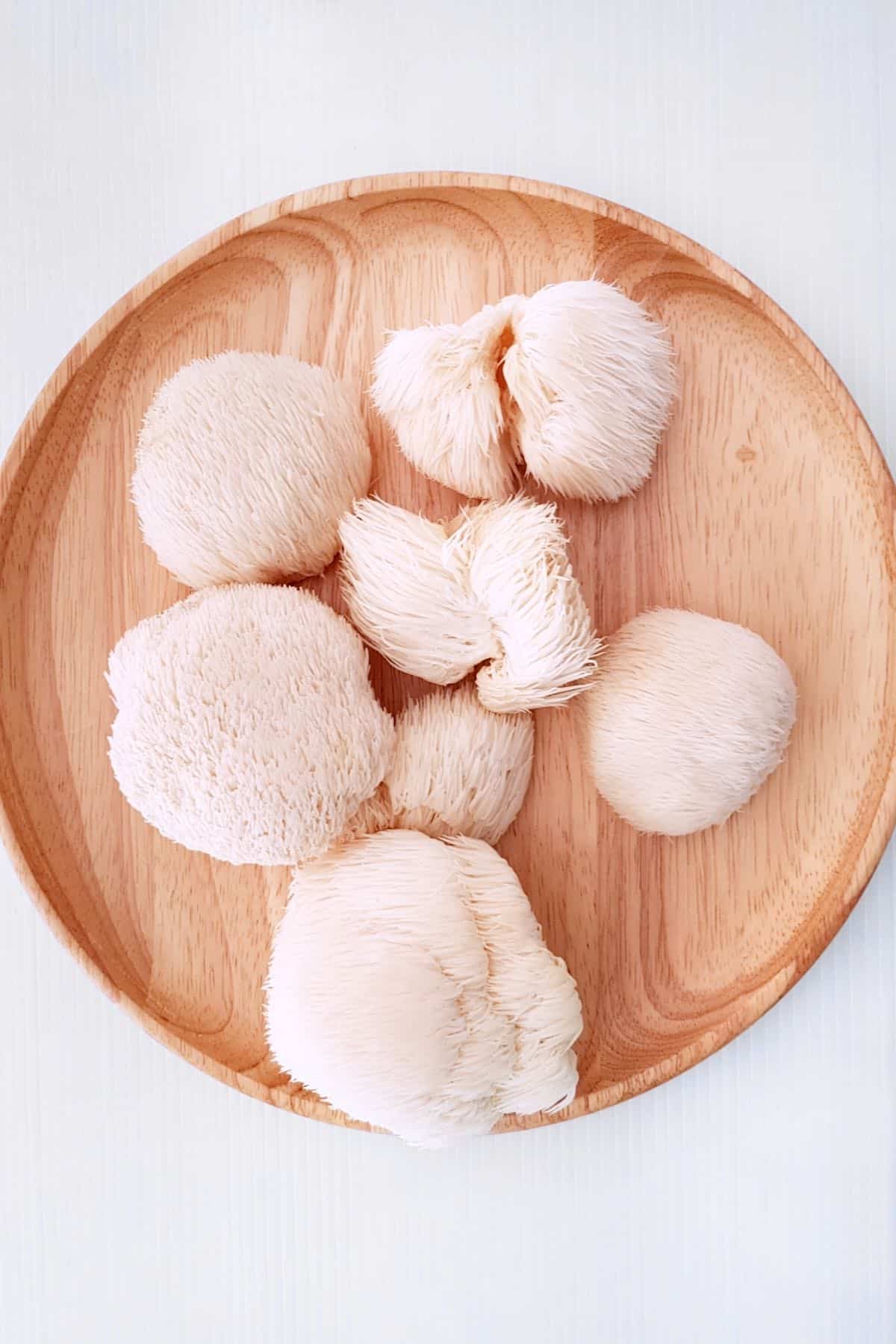
More so, lion’s mane may be good for providing a general brain boost; helping to produce NFG (nerve growth factor) and myelin, which are both critical for brain health.
This mushroom can be a good choice for those wanting improved concentration, cognition, and memory. It may also help to reduce anxiety and low mood irritability. Here is a list of several (evidence-based) Health benefits of lion’s mane mushrooms.
Cordyceps
Cordyceps has a limited amount of human research. However, the research that has been carried out shows the potential to allow bodies to increase their resistance to stress-induced exercise/activity and reduced fatigue levels.
Other Healthful Mushrooms for Coffee
Chaga Mushrooms
Chaga mushrooms are not usually categorized as an adaptogen. However, they do contain several adaptogenic qualities. Chaga mushrooms are an antioxidant powerhouse, perfect for fighting inflammation and oxidative stress, and contain anti-cancer properties. Chaga mushroom coffee has become very popular in recent years.
Turkey Tail
Turkey tail is THE mushroom for those looking for a cancer-fighting powerhouse. While many mushrooms contain anti-cancer properties, these include the compound PSK (polysaccharide-K), which stimulates the immune system. The results? Turkey tail can help to fight leukemia cells, improve the survival rate with several cancers, and is even prescribed medicinally for cancer in Japan.
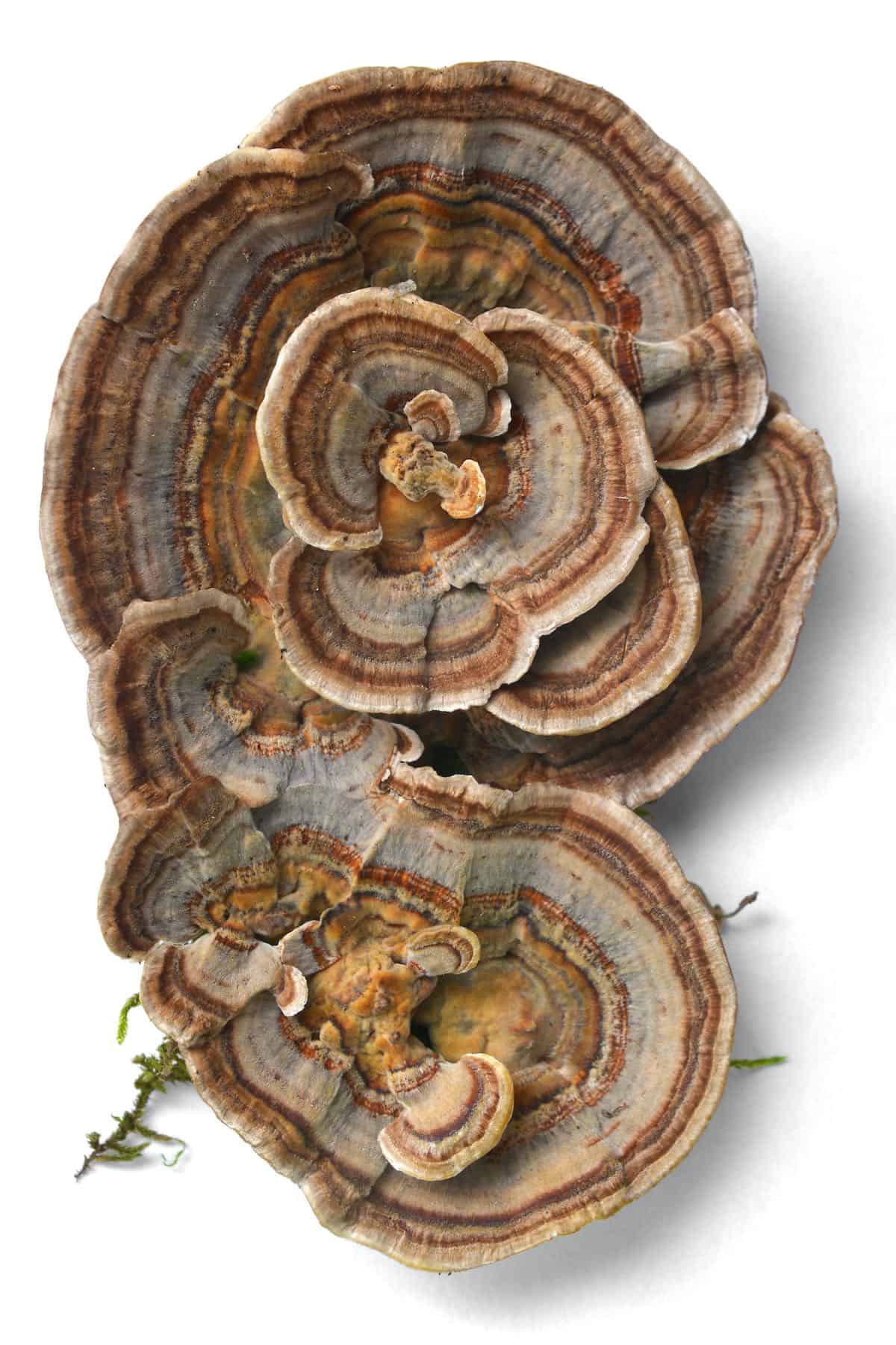
As well as the above, turkey tail mushrooms are also packed with antioxidants And may even improve gut health due to the prebiotics it contains.
Shiitake mushrooms
Shiitake mushrooms are the one fungus on this list that you’re most likely to already have in your kitchen. While it’s a delicious addition to several recipes (like these delicious mushroom dumplings), they are also great for improving heart health, lowering cholesterol, and improving blood pressure levels and circulation.
Final Note On Using Mushroom Powder
Be careful when trying any new ‘herbal’ medicine, even these adaptogenic mushrooms. Reishi can occasionally cause side effects including headaches and dizziness. Avoid this fungus if you are pregnant, breastfeeding, on blood pressure medication, or have a bleeding disorder.
Several adaptogen mushroom powders contain other adaptogenic herbs too, which may interact with medications and come with their own side effects for some. It’s always best to refer to a medical professional before introducing these types of products into your life.
The Ingredients
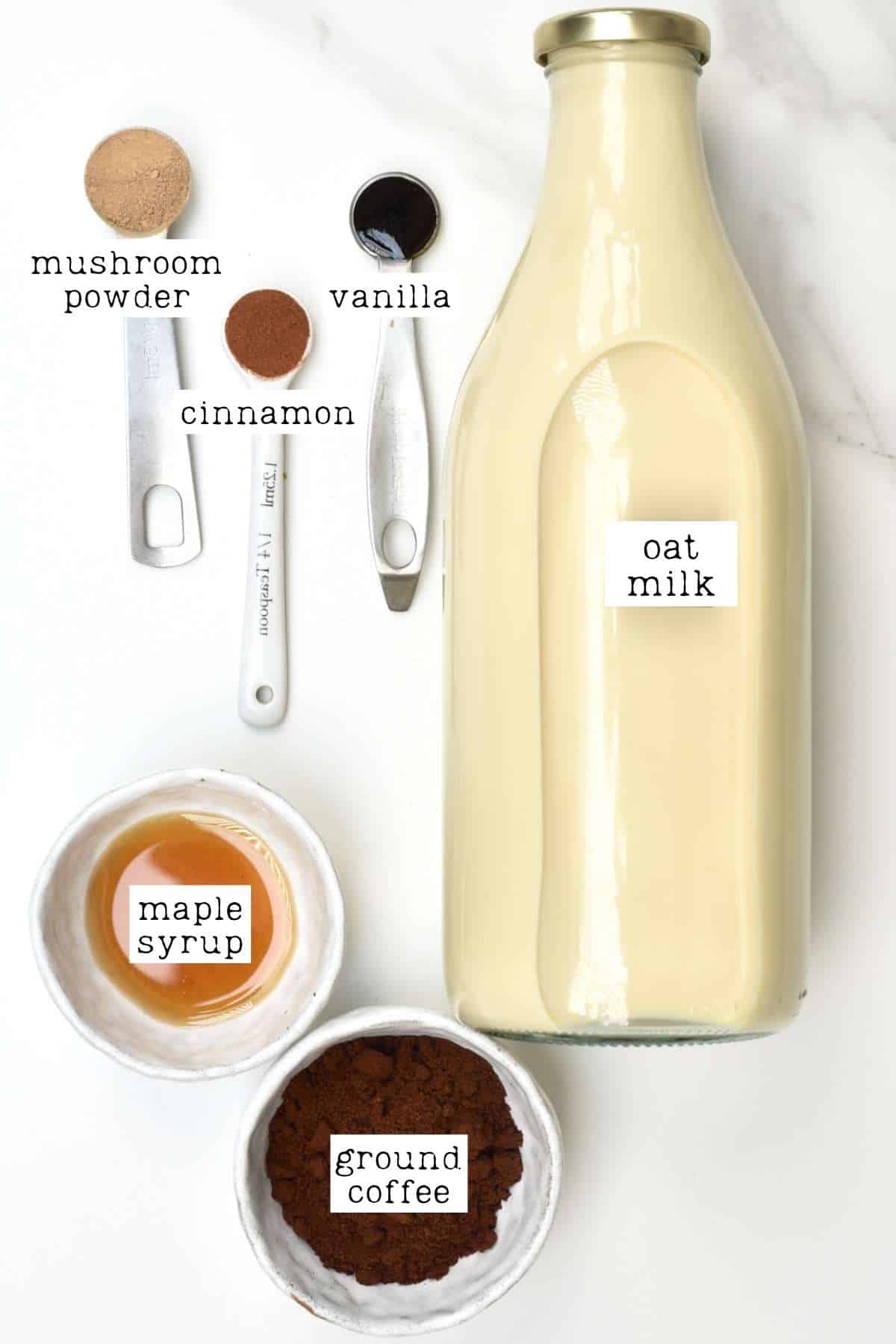
- Coffee: I use ground coffee to make filter drip coffee. However, you could also use instant coffee grounds or use espresso.
- Milk: use your preferred milk – I used oat milk (or oat milk creamer). Cashew milk is another favorite of mine.
- Flavorings: I used a simple combination of cinnamon and vanilla extract for a sweet and delicious flavor.
- Sweetener: use your sweetener of choice – maple, honey, agave, date syrup, or even sugar.
- Mushroom powder: choose the powder or mushroom blend based on what benefits you want: Reishi, Turkey tail, shiitake, Lion’s mane, cordyceps, etc.
Other Optional Add-ins:
- Other spices: cardamom, nutmeg, ginger, etc. Chai spices would also work.
- Superfood powders: like maca powder.
- Cacao powder: or cocoa powder to create a mushroom mocha.
- Other adaptogens: Like ashwagandha.
- Whipped cream or coconut cream.
How to Make Mushroom Coffee
Making this mushroom latte is incredibly simple and is made up of just a couple of steps.
First, heat your water to around 195ºF/90ºC (it’s best to use this temperature, NOT boiling water, for coffee). Add the coffee and cinnamon to a coffee filter and pour in the water, allowing it to drip into a jar/your cup

Then, add the remaining ingredients (except the milk) to the glass and stir well.

Finally, add the milk – I like to froth it first using one of the milk frothing methods mentioned here.

FAQs
This comes down to which mushroom powder you use, of course. However, I’ve found that mushroom powder can blend quite well with the strong flavor of coffee and simply help to add a depth of flavor and sometimes umami flavor to your brew.
I think this depends on the exact mushroom you use. However, I recommend using 1/2 tsp (up to 1 tsp max) per day.
Mushrooms, generally, contain some great health benefits, so it makes sense that mushroom coffee can also positively impact health when enjoyed in correct doses. The exact health benefits will vary based on the mushroom powder used, too.
In general, mushroom coffee blends can allow you to reduce caffeine intake, which can reduce the negative side-effects associated with it: jitters, anxiety, sleeplessness, etc.
I recommend trying one mushroom powder variety at a time and make a note of any side effects, so you know which works well for you.

Recipe Notes and FAQs
- Using mushroom coffee blends: you can use mushroom coffee in multiple ways, including making black coffee, lattes, and even mochas.
- For caffeine-free coffee: you can use a coffee alternative like this date seed coffee or another option like dandelion root coffee.
- Experiment with mushrooms: Read the list of potential mushroom powders above and choose and experiment accordingly, to find your perfect blend!
Other Wholesome Warm Drink Recipes
- Matcha latte
- Green tea
- Pineapple skin tea (anti-inflammatory)
- Golden milk
- Iced matcha latte
- Date seed latte (caffeine-free)
- Bulletproof Coffee
If you try this homemade mushroom coffee recipe, I’d love to hear your thoughts/questions below. Also, I’d appreciate a recipe card rating below, and feel free to tag me in your recipe recreations on Instagram @Alphafoodie!

Healing Mushroom Coffee (Adaptogen Coffee)
Equipment
Ingredients
- 1 cup oat milk or other milk
- 2 Tbsp ground coffee for drip coffee, through a filter. You can also use espresso
- 1/4 cup hot water for drip coffee
- 2 tsp maple syrup or sweetener of your choice
- 1 tsp mushroom powder reishi, cordyceps, lion's mane, chaga, turkeys tail, shiitake, etc.
- 1/4 tsp ground cinnamon powder
- 1/4 tsp vanilla extract or paste
Instructions
- Heat your water to around 195ºF/90ºC (it’s best to use this temperature, NOT boiling water, for coffee). Add the coffee and cinnamon to a coffee filter and pour in the water, allowing it to drip into a jar/your cup.
- Add the remaining ingredients (except the milk) to the glass and stir well.
- Add the milk – I like to froth it first using one of the milk frothing methods mentioned here.
Notes
- Using mushroom coffee blends: You can use mushroom coffee in multiple ways, including making black coffee, lattes, and even mochas.
- For caffeine-free coffee: You can use a coffee alternative like this date seed coffee or another option like dandelion root coffee.
- Experiment with mushrooms: Read the list of potential mushroom powders above and choose and experiment accordingly, to find your perfect blend!
Nutrition
Nutrition information is automatically calculated, so should only be used as an approximation.
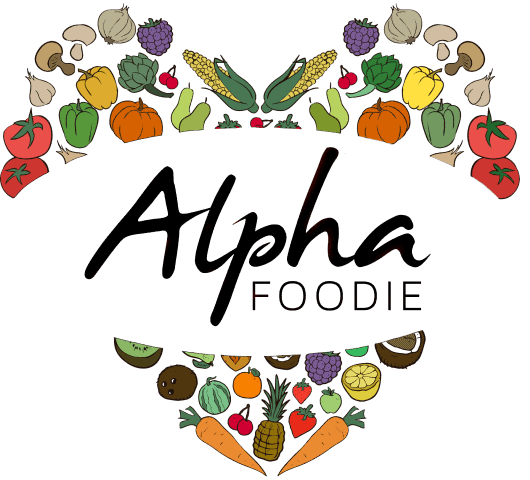

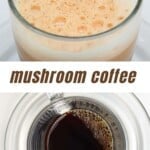
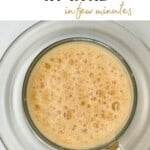











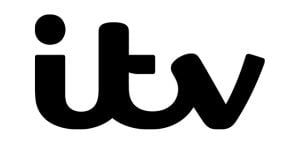
Hello! I would like to try this. Do you have any recommendations as far as which brands to try for the mushroom powders? Thanks so much!
Hi Antoinette,
I couldn’t recommend a brand as there are different options available in different markets. It’s best to check what’s available to you and read some reviews specific to that company. I hope you still give this recipe a try!:)